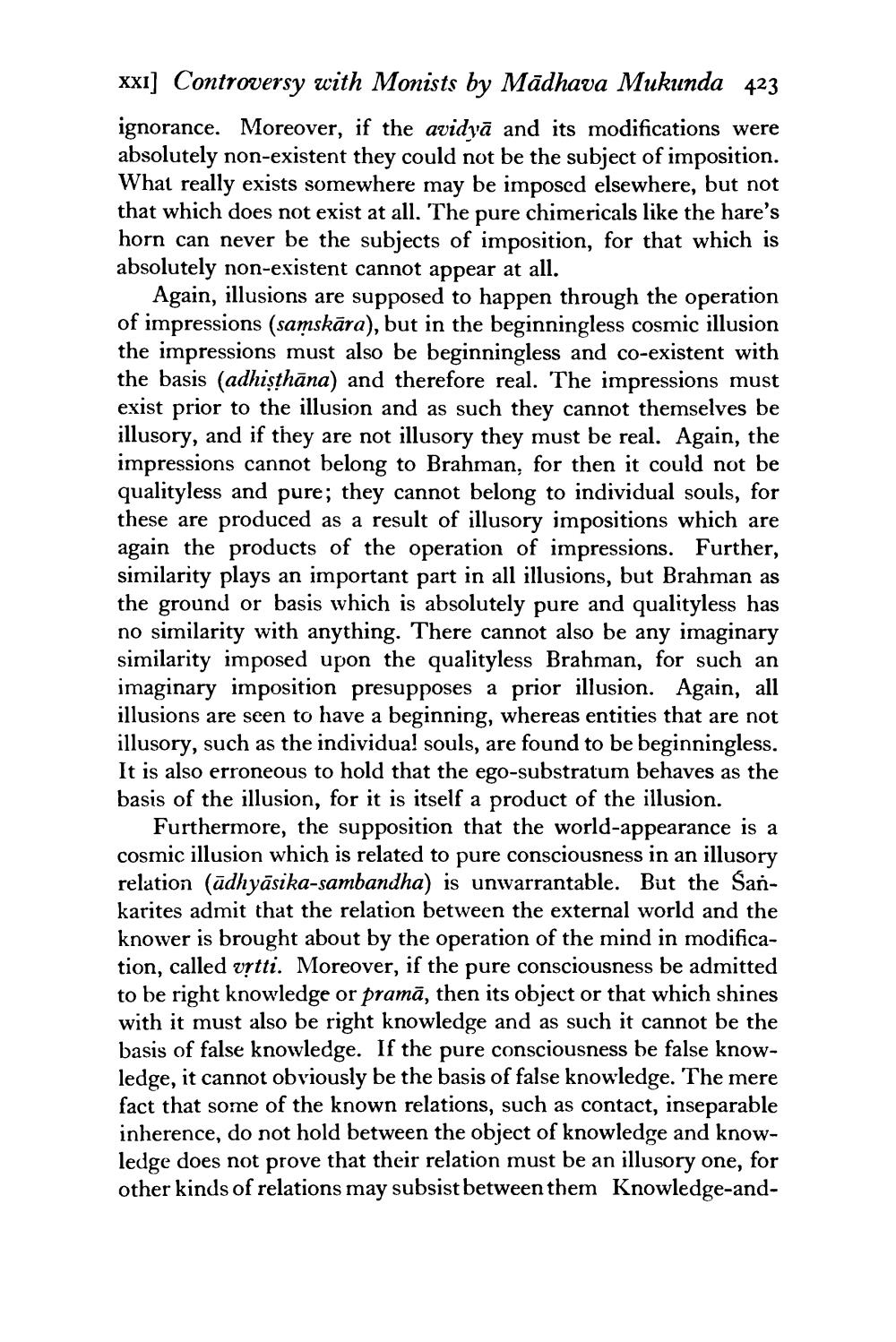________________
XXI] Controversy with Monists by Mādhava Mukunda 423 ignorance. Moreover, if the avidyā and its modifications were absolutely non-existent they could not be the subject of imposition. What really exists somewhere may be imposed elsewhere, but not that which does not exist at all. The pure chimericals like the hare's horn can never be the subjects of imposition, for that which is absolutely non-existent cannot appear at all.
Again, illusions are supposed to happen through the operation of impressions (samskāra), but in the beginningless cosmic illusion the impressions must also be beginningless and co-existent with the basis (adhisthāna) and therefore real. The impressions must exist prior to the illusion and as such they cannot themselves be illusory, and if they are not illusory they must be real. Again, the impressions cannot belong to Brahman, for then it could not be qualityless and pure; they cannot belong to individual souls, for these are produced as a result of illusory impositions which are again the products of the operation of impressions. Further, similarity plays an important part in all illusions, but Brahman as the ground or basis which is absolutely pure and qualityless has no similarity with anything. There cannot also be any imaginary similarity imposed upon the qualityless Brahman, for such an imaginary imposition presupposes a prior illusion. Again, all illusions are seen to have a beginning, whereas entities that are not illusory, such as the individual souls, are found to be beginningless. It is also erroneous to hold that the ego-substratum behaves as the basis of the illusion, for it is itself a product of the illusion.
Furthermore, the supposition that the world-appearance is a cosmic illusion which is related to pure consciousness in an illusory relation (ūdhyāsika-sambandha) is unwarrantable. But the Sankarites admit that the relation between the external world and the knower is brought about by the operation of the mind in modification, called vịtti. Moreover, if the pure consciousness be admitted to be right knowledge or pramā, then its object or that which shines with it must also be right knowledge and as such it cannot be the basis of false knowledge. If the pure consciousness be false knowledge, it cannot obviously be the basis of false knowledge. The mere fact that some of the known relations, such as contact, inseparable inherence, do not hold between the object of knowledge and knowledge does not prove that their relation must be an illusory one, for other kinds of relations may subsist between them Knowledge-and




